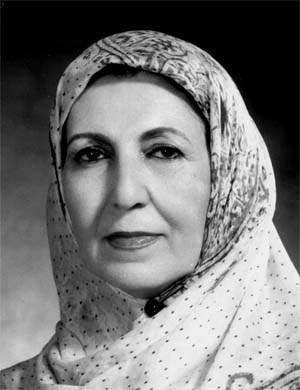Apr 14, 2025
Apr 14, 2025
by Mehru Jaffer
 Most women in Iran remain under enormous economic and cultural pressures but they are facing the hardships with courage. "Whip lashes and six months in prison do not threaten us any more," said Shahla Lahiji, 65, founder of Roshangaran, Iran's first publishing house that produces books by and about women.
Most women in Iran remain under enormous economic and cultural pressures but they are facing the hardships with courage. "Whip lashes and six months in prison do not threaten us any more," said Shahla Lahiji, 65, founder of Roshangaran, Iran's first publishing house that produces books by and about women.
09-Nov-2008
More by : Mehru Jaffer